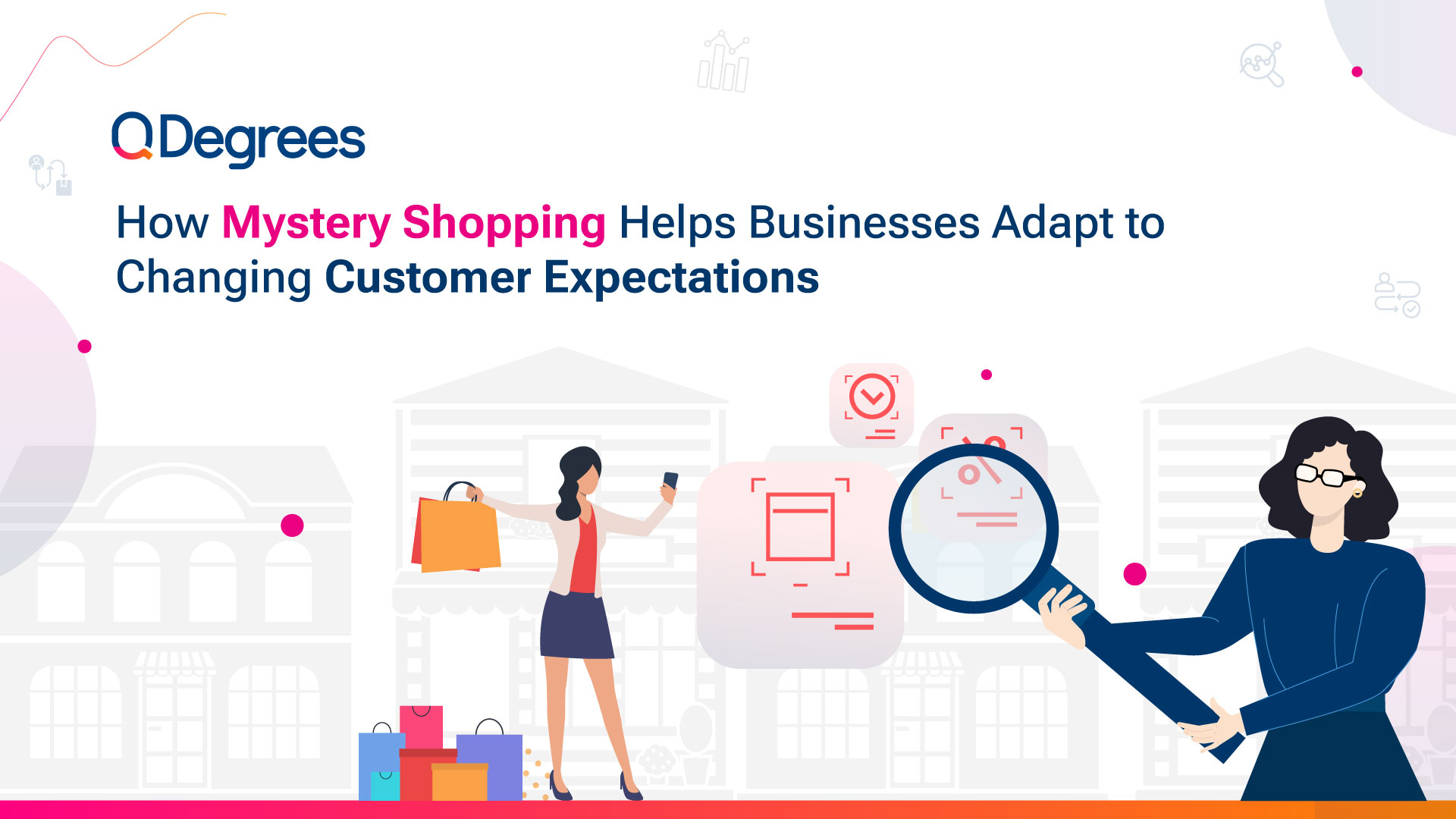Newsletter
ServicesHow Mystery Shopping Helps Businesses Adapt to Changing Customer Expectations
BY QDegreesPUBLISHED
Aug. 21, 2025
Aug. 21, 2025

“Your customer’s loyalty is not lost in a single bad experience; it is chipped away one unnoticed detail at a time.”
And in today’s fast-moving market, those details change faster than you think. What delighted a customer yesterday may only satisfy them today and disappoint them tomorrow.
This is where Mystery Shopping benefits come into play, as it helps you see your business exactly as your customers do. Instead of relying on assumptions, it reveals how real interactions measure up to rising customer expectations in business. By capturing genuine experiences, it uncovers service gaps you might never find in data alone. This clarity is what enables brands to start truly adapting to customer needs, keeping them ahead of shifting demands and ensuring no silent dissatisfaction turns into a lost opportunity.
Let’s look into a scenario of a national retail chain that noticed declining repeat visits despite steady foot traffic. Through mystery shopping for service quality, they discovered checkout staff often skipped offering assistance with product returns, something customers valued highly. By retraining staff and monitoring through follow-up visits, customer satisfaction scores improved by 18 percent within two months. The insight came not from surveys, but from seeing the experience exactly as a customer did.
How Mystery Shopping Addresses Shifting Customer Expectations
● Reveals Service Gaps: Mystery shopping helps businesses spot hidden issues in the customer journey, allowing them to address service gaps before they impact loyalty and overall satisfaction.
● Captures Real-Time Insights: By gathering up-to-date feedback from actual customer interactions, it lets managers react quickly and keeps operations aligned with ever-evolving customer expectations.
● Aligns Perception and Reality: It bridges the gap between how managers think their service runs and what customers experience, providing clear evidence for necessary changes and improvements.
● Highlights Process Breakdowns: Mystery shoppers observe each step of the process, pinpointing where routines or systems fail. Addressing these issues leads to smoother, more reliable experiences for all customers.
● Strengthens Brand Consistency: By ensuring every location, team, and service point meets set expectations, mystery shopping helps uphold brand standards and builds a consistent, trusted reputation everywhere.
Turning Insights into Business Improvement
● Targeted Training: Detailed mystery shopping feedback identifies training needs, allowing businesses to address real performance gaps and empower employees to deliver service that meets today’s expectations.
● Process Refinement: Observations are used to refine essential processes, remove pain points, and streamline the overall customer journey for greater efficiency and satisfaction.
● Product and Service Adjustments: Mystery shoppers' insights often uncover unmet needs or overlooked opportunities, allowing businesses to make meaningful improvements to products and services that customers genuinely appreciate.
● Customer Feedback Improvement: Comparing internal findings with customer feedback offers a complete view, enabling better responses and genuine recognition of what truly matters to both staff and clients.
● Maximizing Customer Experience Improvement: Recognizing strengths found in mystery shopping helps businesses spread best practices, ensuring every customer enjoys a positive and memorable experience with the brand.
● Digital Audits and Virtual Compliance: Beyond physical visits, digital technology enables virtual audits to ensure online and offline stores follow brand guidelines, offering an added layer of consistency and control across all channels.
Conclusion
Mystery shopping provides a valuable outside-in perspective, allowing businesses to see their service exactly as customers do. This firsthand view uncovers hidden issues and evolving expectations that traditional data often misses. By using these real experiences, companies can make faster, smarter decisions to improve service quality and consistency. This approach helps brands stay responsive, maintaining strong customer loyalty even as demands change. Ultimately, it is a crucial tool for ongoing customer satisfaction and business success.
